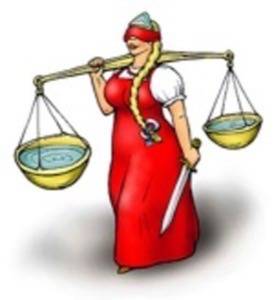We live in an age when success of innovation is mixed with unprecedented failures.
On one hand we’re reinventing the web, fighting for a greener future and building genomix.
On the other there are housing bubbles, credit crises and war.

The technology patent crisis is important to our future. For decades the patent law
served its purpose. Inventors used copyrights,
trademarks and patents to protect their work and launch their innovations.
But today’s technology intellectual property system is a failure – unable
to keep up with the speed of innovation, it’s fallen apart.
The result? We live in an age of open source ideas. We freely borrow and build on each other’s solutions.
At first glance this may seem fine, but there are important consequences that may change the
way we innovate.
What happens when a big company copies a startup? What happens when dozens of startups copy each other?
In this post
we work through these and other questions, in attempting to understand where intellectual property in
technology is heading.
The Good Old Patents
The word patent comes from Latin and means to lay open. Patents were established as the means by
which inventors disclose their products to the public. In a typical process the inventor would write down the steps,
or the algorithm, for the creation and send it to the patent office for consideration.

Once granted, the patent serves as
a protection for the invention. Legally, no one is allowed to copy the invention; instead,
they’re required to license it and typically pay royalties.
The patent is granted for a limited, usually lengthy, period of time. After the patent expires, the innovation
becomes essentially public and now can be used by anyone. So the protection that inventors enjoy comes at a cost,
for they eventually have to give up their invention.
Previously, when facing the choice between disclosing an invention or not,
people did so more often than not. The reason: the time span the patent held was sufficient to make money because
of the exclusivity guaranteed by the patent.
The system worked quite well when the world was slower, but the recent acceleration
changed everything. With time to market being much shorter, the patent system instantly become ridiculous and
obsolete.
The Patent Crisis
Here’s a simple scenario. A startup produces an innovative idea and works with a patent lawyer to file a patent.
This takes a considerable amount of time (a few months at least) and a substantial amount of money
($25K+). But the startup does it
anyway and after the patent is filed, people feel comforted that their idea is safe.

Right? Of course not! Not even close. Any patent filed today will take 4-6 years to approve.
In the current era where a week is a long
time and a year is an eternity, the time to process a patent is unbearably long. Because of this gap, filing a patent
appears useless. While you can threaten based on a pending patent, people are unlikely to take it seriously.
Litigating software patents in court is expensive and often unsuccessful. The problem is
that with software you can do things slightly differently and the patent becomes unenforceble. This is because
lawmakers ensure patent claims are as narrow as possible. For example, if someone
implements just a piece
of the whole system differently, the court is unlikely to rule in your favor.
The Age of Shameless Stealing
The problem is that while your patent is pending, competitors can
copy your
ideas and build on them. By the time your patent is granted, competitors can already win the market, be profitable,
or even exit out of business.

The mismatch between the time it takes to get the patent and time it takes to
copy the innovation encourages the copycats. Today’s software industry is flooded with clones.
There are dozens of me too! startups for each major technology area.
All the startups are borrowing ideas, UI elements and functionality from each other.
And because of the powerful technology at our disposal copying is
so easy. Someone said to me once: Oh we don’t want to use your technology, my dev guys can
whip out
something like this in a couple of days.
Sadly, the age of open source ideas is actually the age of shameless
stealing.
Who Wins?
Startups copy each other, but the problem doesn’t stop there. It gets worse when web giants
copy startups.
Once your idea gets incorporated into a big company’s offering, things get
tough.

A recent example is new Google browser Chrome. No doubt, it’s a spectacular piece of
software – elegant, simple, probably the browser of the future. A lot of
the ideas in Chrome are not original, but taken from other browsers and add-ons.
Is this fair? Not really. But in today’s
tech world, the word fair has been replaced with the phrase fair game.
Luckily for startups, most big companies are not good at execution, so it isn’t that easy for them to copy.
But when and if a large company comes out with a clone, the match is unfair.
Resources and distribution certainly matter
when it comes to tech adoption, so the patent situation is strongly in favor of big companies. They can
observe the market, see what ideas take off, and cherry pick what they see as interesting.
Who Really Wins
Perhaps the biggest irony in this patent debacle is that it benefits customers.
Previously a patent would create
a lock, a barrier to entry, while today innovation occurs with greater speed.

Because patents are irrelevant, companies
small and large relentlessly go after each other, raising the bar, coming up with better products.
At the end of the
day this benefits the users.
We’re observing an evolutionary dynamic where companies are battling for
viewers.
This is a street fight where the gloves are off and big money is at stake.
Companies are pushing each other to deliver better software faster. In the meantime, users are enjoying the
new elegant tools as well as the fight itself.
The Future of Technology Innovation
Where is all this heading? What is the future of innovation and intellectual property around it?

The status quo doesn’t make sense. The laws need to be useful, and current patent laws are
obsolete and inadequate. Is there a middle ground between old patents and no laws at all?
Brad Feld, who has written a lot on this topic over the past years,
thinks the answer is no:
“After wrestling with software patents for 15 years, I’ve concluded
there simply is no middle ground.
If we continue on the path we’re on, patents will increase in their overall expense to the
system. Everyone will feel compelled to apply for as many (and as broad) patents as possible, if only for defensive
reasons.”
In a related post, Fred Wilson writes a cliche of the week:
Patents are like nuclear bombs, you just got to have some.
He continues:
“I have never seen patents make a business, but I have seen lack of patents hurt a business on many
occasions.
IP battles are like the cold war. Those who have patents can keep others honest because nobody wants to start a war that might end in everyone’s destruction. But those who have no patents are sitting ducks and don’t have the weapons to keep others honest.
My advice to entrepreneurs is always file a bunch of patents. But don’t expect they’ll ever do more than keep others at bay.”
It doesn’t seem satisfactory either way. To not have patents at all means that
at the end of the day big companies
will always absorb all the best innovation for free. Filing patents just for the sake of having weapons that you’re likely
never to use seems costly and wasteful.
Is there a middle ground? What would you like to see happen in the future with software
intellectual property?

















